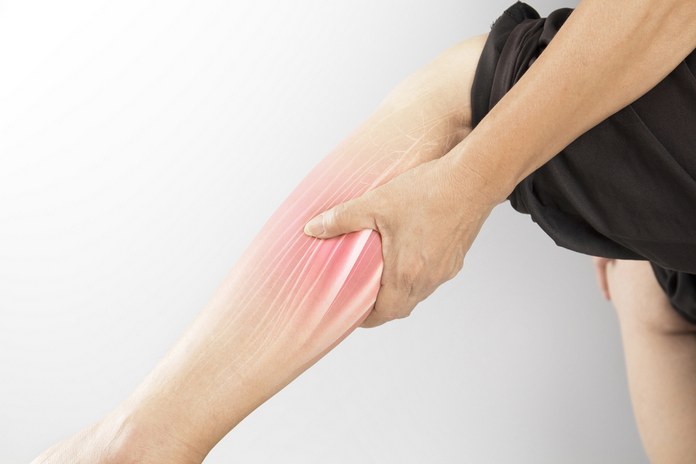Causes of Calf Pain

As opposed to your shins, the calf area contains mainly muscle tissue. It is made up of several muscles, which are primarily responsible for the flexion and extension of the knee. The major muscle group in the calf area is the soleus muscle, which lies along the posterior side of the calf. The muscles in the calf area also help to stabilize the ankle joint. These muscles include the gastrocnemius and the plantaris.
It can be quite easy to strain the muscles that make up the calf and cause them to hurt. The main culprits are:
- Calf muscle cramps: It is an involuntary contraction of your calf muscles, and it can sometimes happen suddenly or be maintained over a long time. Calf cramps are often felt in the evening or at night. They could even wake you up at night with pain that lasts for a few minutes and then goes away. But even as it goes away, you’re left with an uncomfortable sensation on your feet. In some cases, it is severe enough to give you a visible sign of twitching and knots in your lower leg.
- Gastrocnemius strain: It is a more severe calf injury caused by the overstretching of the muscle that is responsible for flexing the foot. It often happens when you do jumping exercises or very violent sprinting. Sometimes, you can even hear a pop sound, but the pain does not start immediately. It begins after you give a few more steps and can become very severe. This pain can be accompanied by bruising and swelling of the leg.
- Calf contusions: This milder injury usually does not affect your life and will heal in less than two weeks. A contusion is when your foot or leg is forced against another object or surface. It is basically a bruise and typically improves with rest.
- Soleus muscle strain: This is the most common injury among runners. This injury usually occurs while running downhill or if you run too fast on an incline. You can often feel it when you are running because it is the only strained muscle. It is more painful than a bruise, and it feels like deep tightness and soreness when you press on the Achilles tendon or pull the toes to your shin.
